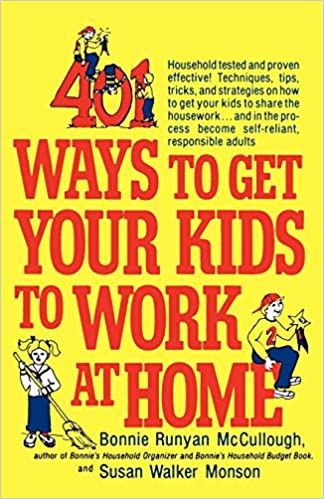Just because we know all the information in the world about economics, automobiles, and money management, if we don’t have the skills to take care of our own bank account or simple car maintenance, we’re going to hit some roadblocks in life.” Every child who goes out into adulthood needs to have some basic life skills.
Every child who goes out into adulthood needs to have some basic life skills. Share on XWe are in a blog series on how to launch your kids into the world. Today’s post is S is for Skills. This post is the 4th in the series. Click here to go back to the beginning of the series.
Here are some ways you can add some life skills into your educational plan for launching your kids into the great big world. Click here to get a free pdf plan for how to launch your student. What can you start implementing today?
Teaching Life Skills
There are four areas you can begin now to teach your kids life skills at home.
- Cooking and Eating
- Home Management
- Banking and Employment
- Car Maintenance

Cooking and Eating
So many skills in this area can be learned before they leave your home.
Teach your kids how to:
- Eat different things (start this as early as possible and you won’t have finicky eaters)
- Make breakfast and lunch for themselves. Oatmeal, eggs, soup, sausage/bacon, grilled paninis, and tuna sandwiches are all things they can learn to cook in upper elementary school. We have a rule that a parent must be home when they are cooking anything. (Don’t ask me why we have that rule! ) 🙂
- Summertime is a great time to delegate cooking meals at dinner one night a week. Rotate who is in charge. Help them pick the meal, plan it, get the groceries and implement it. If this is a tiring process for you, make dessert and do any prep work earlier in the day, then put the dinner together at night. When they get into high school, you can have them do it all! Build up a recipe book of meals they can cook.
- Crockpot meals are easy ones to start with since they are often just one-pot dump meals!
- Create a Monthly menu – include Crockpot meals once or twice a week and then rotate it every 30 days.
- Ask your family what their favorite meals are and create a “favorite” menu that you rotate. This is also great for special events like birthdays and when your kid comes home from college or has achieved something – celebrate with their favorite meal.
- Another thing I did was make my list of meals based on types of food: chicken, beef, port, etc. and genre like American, Italian, Mexican and then rotate those meals so we have different types of main courses during the week.
Home Management
- Teach your kids basic chores from the time they are 2. Taking out the trash, putting their clothes in the hamper, wiping the table down. Even if the job isn’t done perfectly, it is better than them not being required to do anything. My daughter’s first college roommate had never had to clean anything or do her own laundry! Don’t let this be your daughter!
- Have standard daily routines in the morning (breakfast, dress, brush teeth) and evening (bath or shower, brush teeth, lay out clothes, set backpacks/music/sports equipment by the door in a “loading station”)
- Require Weekly chores that each person is in charge of. Divide house into Zones and assign chores to each person.
- Over the years we tried many different chore methods. My favorite method (and the one that worked the best) was Chore Sticks. Each child had a cup with their sticks for the day. When they did the sticks, they put them in a pocket taped to the wall in the laundry room. When I calculated what they had done the next morning, I gave them tickets. One ticket for every 3 chores. They could turn in the ticket for screen time or 50 cents. I would also take away tickets for misbehavior. When they are really little, they brought their tickets in a plastic bag to the doctor’s appointment. Any crazy behavior meant they had to pay me a ticket. They quickly learned to act right in the doctor’s office!
- When they become teenagers, they will be very busy. You may have to change their weekly chores to Saturday clean-up days where everyone works for a couple of hours. This is what we do mostly now. After our Saturday workday is complete, then we reward them with a treat they don’t normally get.
Banking and Employment
- Start out as early as possible with jobs in the neighborhood. My daughters did babysitting and pet sitting. My son got his first yard/landscape job at age 12.
- If you have a great, reputable fast food establishment near you, I highly recommend letting them apply and work there. Some will even hire 14 and 15-year-olds. The customer service and stress management skills they learn at a job like this are invaluable. Many fast food chains offer scholarships to apply for as well.
- In high school, begin looking for Internships that they can apply for during the summer. Some internships will be more like a summer camp that you pay for. Others might be a competition that you compete for. Google something like “science summer high school internships in Georgia” and read the fine print.
- We opened up savings accounts for each child very early on. When they received money as a birthday or Christmas gift, we let them spend half and deposit half. So they already had a start on saving for a car or college expenses. Then when they got a job, we had them deposit half to savings, pull out some for giving away to the church and spend the rest, including gas, clothes, and makeup!
- When they began driving, we started them a checking account with a Debit card. Learning to manage their money and gas on their own is so important. Our bank lets us set up balance alerts that send them a weekly email so they will know how much is in their account. I also recommend they start using the Every Dollar app to learn how to manage their spending budget.
- As you do these things, you may face some disappointment. The restaurant may not hire your kid. They may spend all their money and disappoint you. But y
Car maintenance
Every teen driver needs to learn some basic car maintenance skills. Here is a list of some to focus on.
- How to clean their car
- How to check their oil and how to add oil when necessary
- How to check the air pressure in their tires and add air to tires
- How to change a flat tire
- How to change window wiper blades
Some of my Favorite Resources for teaching life skills:
- Book: 401 Ways to Get Your Kids to Work at Home Awesome book with great ideas on teaching life skills to kids.
- Photo Album Cookbook: Create their own cookbook by using a photo album. Add recipes they have cooked on index cards. Then they have a comprehensive list of meals that they have learned how to cook.
- Chore sticks: Use popsicle sticks to make your own set of chore sticks.
Click here to get a free pdf plan for how to launch your student.
This post may contain affiliate links. To read my affiliate disclosure policy, click here.
Blessings,
Michelle



